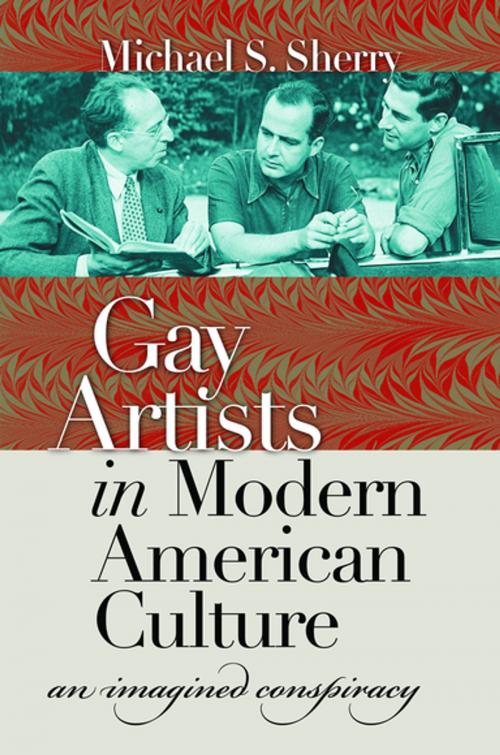Gay Artists in Modern American Culture
An Imagined Conspiracy
Nonfiction, Social & Cultural Studies, Social Science, Gender Studies, Gay Studies, History, Americas, United States, 20th Century| Author: | Michael S. Sherry | ISBN: | 9780807885895 |
| Publisher: | The University of North Carolina Press | Publication: | September 10, 2007 |
| Imprint: | The University of North Carolina Press | Language: | English |
| Author: | Michael S. Sherry |
| ISBN: | 9780807885895 |
| Publisher: | The University of North Carolina Press |
| Publication: | September 10, 2007 |
| Imprint: | The University of North Carolina Press |
| Language: | English |
Today it is widely recognized that gay men played a prominent role in defining the culture of mid-twentieth-century America, with such icons as Tennessee Williams, Edward Albee, Aaron Copland, Samuel Barber, Montgomery Clift, and Rock Hudson defining much of what seemed distinctly "American" on the stage and screen. Even though few gay artists were "out," their sexuality caused significant anxiety during a time of rampant antihomosexual attitudes. Michael Sherry offers a sophisticated analysis of the tension between the nation's simultaneous dependence on and fear of the cultural influence of gay artists.
Sherry places conspiracy theories about the "homintern" (homosexual international) taking control and debasing American culture within the paranoia of the time that included anticommunism, anti-Semitism, and racism. Gay artists, he argues, helped shape a lyrical, often nationalist version of American modernism that served the nation's ambitions to create a cultural empire and win the Cold War. Their success made them valuable to the country's cultural empire but also exposed them to rising antigay sentiment voiced even at the highest levels of power (for example, by President Richard Nixon). Only late in the twentieth century, Sherry concludes, did suspicion slowly give way to an uneasy accommodation of gay artists' place in American life.
Today it is widely recognized that gay men played a prominent role in defining the culture of mid-twentieth-century America, with such icons as Tennessee Williams, Edward Albee, Aaron Copland, Samuel Barber, Montgomery Clift, and Rock Hudson defining much of what seemed distinctly "American" on the stage and screen. Even though few gay artists were "out," their sexuality caused significant anxiety during a time of rampant antihomosexual attitudes. Michael Sherry offers a sophisticated analysis of the tension between the nation's simultaneous dependence on and fear of the cultural influence of gay artists.
Sherry places conspiracy theories about the "homintern" (homosexual international) taking control and debasing American culture within the paranoia of the time that included anticommunism, anti-Semitism, and racism. Gay artists, he argues, helped shape a lyrical, often nationalist version of American modernism that served the nation's ambitions to create a cultural empire and win the Cold War. Their success made them valuable to the country's cultural empire but also exposed them to rising antigay sentiment voiced even at the highest levels of power (for example, by President Richard Nixon). Only late in the twentieth century, Sherry concludes, did suspicion slowly give way to an uneasy accommodation of gay artists' place in American life.















